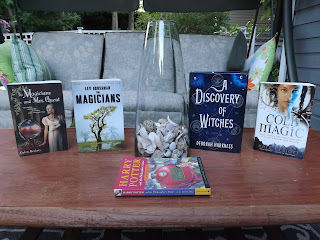The Secret History - By Donna Tartt
Vibe: Mysterious, intellectual, haunting, atmospheric
Set in the fictional Hampden College in Vermont, the story follows Richard Papen, a scholarship student who escapes his mundane California upbringing for a taste of something more refined and dangerous. When he’s accepted into a small, exclusive group of eccentric Greek scholars led by the enigmatic professor Julian Morrow, he finds himself intoxicated by their intellect, beauty, and strange moral code.
From the very first chapter, we know someone has been murdered. Tartt reveals this immediately, much like Emily St. John Mandel does in The Glass Hotel, turning the story into an “inverted detective novel.” The suspense lies not in who did it, but why. As the group’s secret rituals and classical obsessions escalate into something darker, Richard becomes both a participant and observer. When Richard becomes drawn into the murder plot, he becomes witness to the psychological effects that committing and premeditating the act has on himself as well as the others.
Themes and Atmosphere
What makes The Secret History so compelling isn’t the murder itself, but what happens after. It’s about how far people will go in pursuit of perfection and how beauty can lead to destruction.
The book is steeped in Neo-Romanticism —a yearning for the past, the aesthetic, and the transcendent. Tartt’s writing is hypnotic. She captures the melancholic longing for meaning and mirrors the essence of autumn as a reflective season.
One of my favourite quotes perfectly captures that mood:
“It is easy to see things in retrospect. But I was ignorant then of everything but my own happiness, and I don’t know what else to say except that life itself seemed very magical in those days: a web of symbol, coincidence, premonition, omen.”
That line gives off Dark Academia vibes -the belief that life has its meaning through the obsession of art, literature, and myth.
Characterization
The character of Richard is an outsider- he longs for connection, beauty, and significance. Through his eyes, we experience the allure of the secretive group: Henry -the brilliant leader, Bunny -the reckless friend, Francis - the romantic, and Charles and Camilla - the strange twins.
Each of them represents a different facet of a living Greek tragedy like the play they act in. Each character undone by their own fatal flaw. As Richard himself reflects:
“Does such a thing as ‘the fatal flaw,’ that showy dark crack running down the middle of life, exist outside literature? I used to think it didn’t. Now I think it does. And I think that mine is this: a morbid longing for the picturesque at all costs.”
That line feels almost prophetic — for him, and for us as readers.
The Vibe & Reading Experience
Reading The Secret History is a slow, immersive read, filled with atmospheric detail, philosophical dialogue, and moral ambiguity. It stays with you long after the last page, making you question your own obsessions.
It is not a fast-paced thriller but definitely a page turner. The novel reflects on human nature, on how we construct our own mythologies and lose ourselves inside them. It’s the kind of book that should be read slowly, even though you will become obsessed and want to keep reading deep into the night with a cup of chamomile tea, a cozy blanket, lighted candle and the rain against the window.
You’ll Love This Book If…
- you’re drawn to the Dark Academia aesthetic
- you dream of ivy-covered campuses and secret societies
- you love stories with psychological depth and flawed, fascinating characters
- you’re intrigued by moral ambiguity, beauty, and guilt
- you liked The Goldfinch, Babel, or If We Were Villians
"Forgive me, for all the things I did but mostly for the ones that I did not."
Final Thoughts
Reading The Secret History is an experience. It’s the kind of book that makes you want to underline every sentence and reread entire passages. It’s haunting, beautiful, and deep as it delves into the human condition.
It’s easy to see why this novel continues to inspire the dark aesthetic movement decades later. There are books that celebrate fall, and then there are books that are fall. The Secret History belongs to the latter. Its atmosphere of academia, nostalgia, and quiet ruin mirrors the season itself—beautiful, melancholic, and slipping toward darkness.




Comments
Post a Comment